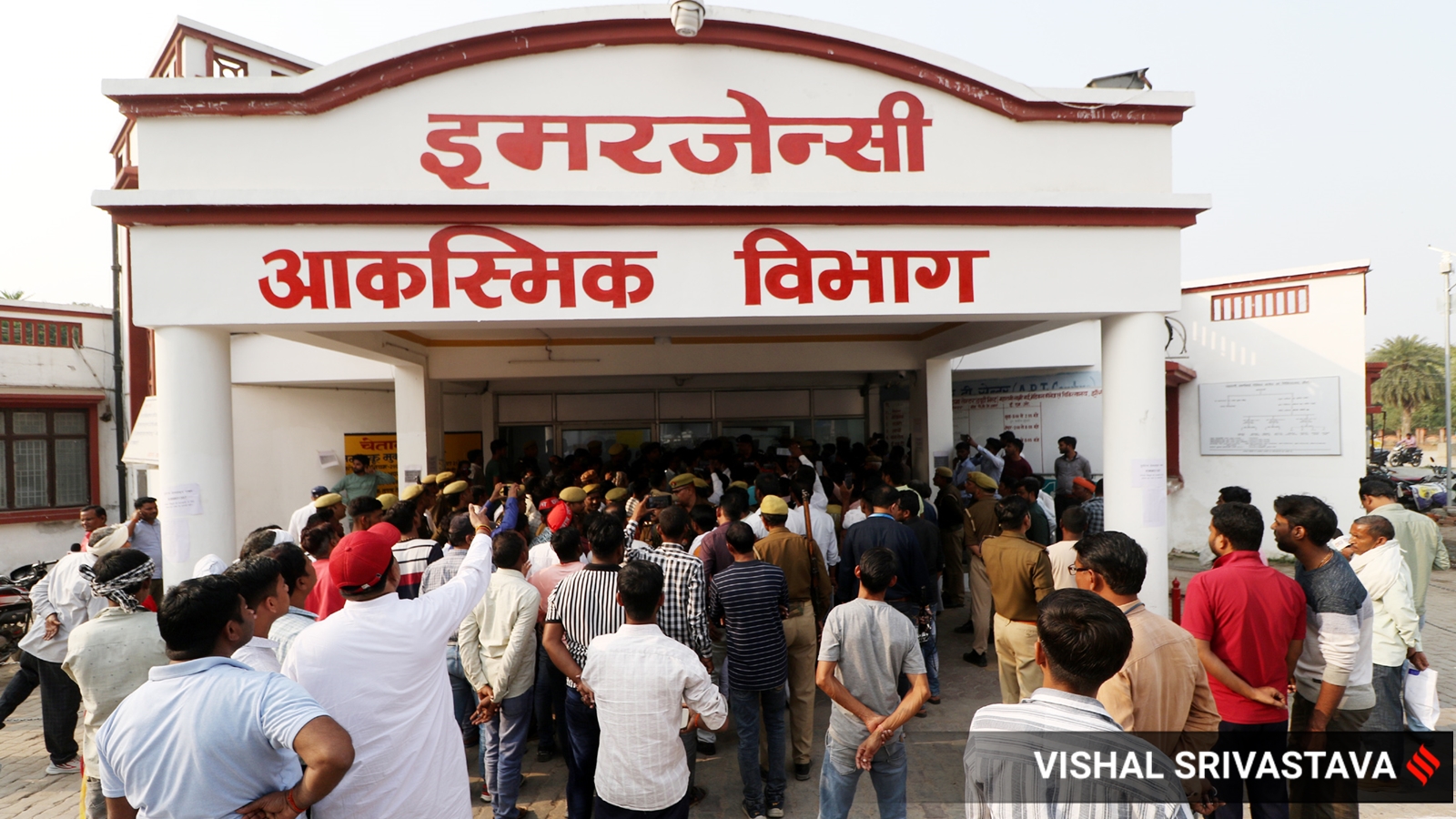 |
|
The tragic fire at a Jhansi hospital, claiming the lives of ten innocent newborns, serves as a stark reminder of the systemic failures in fire safety regulations and enforcement across India. This incident is not an isolated case; it's a horrifying example of a pattern of negligence and a blatant disregard for human life, particularly the most vulnerable members of society. The recurring nature of these fire tragedies underscores a critical need for sweeping reforms and a fundamental shift in priorities regarding public safety. The fact that a facility designed for 18 newborns was housing 49 at the time of the fire highlights a dangerous level of overcrowding and a complete disregard for basic safety standards. This blatant disregard for regulations, coupled with the insufficient fire safety measures, created a deadly environment where a small spark escalated into a catastrophic inferno. The investigation into the cause of the fire needs to move beyond determining the initial spark and delve into the systemic failures that allowed this tragedy to occur. This includes a thorough examination of building codes, inspections, licensing procedures, and the enforcement of safety regulations. The report should outline specific steps to be taken to prevent similar incidents in the future, including stricter penalties for violations, and the implementation of rigorous safety audits across all healthcare facilities.
The sheer number of lives lost in this and similar incidents emphasizes the urgency of addressing the issue of fire safety in India. The article rightly points out that fire exits are often too narrow, or even non-existent, rendering them essentially useless in an emergency. This is a clear indication that many buildings are not constructed with adequate safety measures in place. Furthermore, the presence of highly flammable materials such as oxygen cylinders in close proximity to potential ignition sources is an unacceptable risk. The fact that medical facilities, where the lives of the most vulnerable are entrusted, are so poorly equipped to deal with fire emergencies is utterly appalling. This negligence is not merely a matter of administrative oversight; it represents a profound lack of respect for human life. The responsibility for this tragedy lies not only with the hospital authorities but also with the regulatory bodies that failed to ensure compliance with basic safety standards. A comprehensive review of existing regulations and enforcement mechanisms is crucial to ensure that such incidents are never repeated.
Moving forward, a multi-pronged approach is required to tackle this pervasive problem. This includes stricter enforcement of building codes, regular inspections of facilities, and the implementation of robust fire safety training programs for all staff members. Moreover, there needs to be greater transparency and accountability at all levels. Hospitals and other institutions must be held responsible for maintaining adequate safety standards, and severe penalties should be imposed for non-compliance. Public awareness campaigns are also essential to educate people about fire safety and emergency procedures. The focus must shift from merely meeting minimum requirements to prioritizing the safety and well-being of the people who use these facilities. Furthermore, independent audits of all healthcare facilities and other public buildings should be conducted regularly to ensure compliance with safety regulations and identify any potential hazards. The government should not only conduct these investigations but also make these reports publicly available to ensure that there is accountability and transparency in the process. Finally, the families of the victims deserve justice and compensation for the irreplaceable loss they have suffered.
The Jhansi hospital fire should serve as a wake-up call. The loss of ten innocent lives is a tragedy that should never be repeated. This is not merely a matter of infrastructure; it is a matter of ethics, accountability, and a fundamental respect for human life. The systemic failures exposed by this tragedy demand immediate and decisive action. It is time for India to prioritize fire safety and to ensure that all buildings, especially those housing vulnerable populations, meet the highest safety standards. Only through a comprehensive approach involving stricter regulations, robust enforcement, and increased public awareness can we hope to prevent similar tragedies from occurring in the future. The memory of those ten babies should serve as a constant reminder of the urgent need for change.
